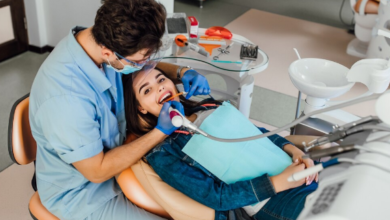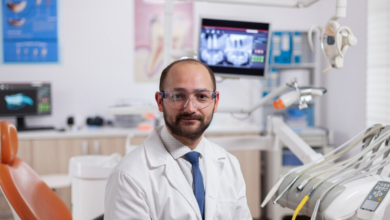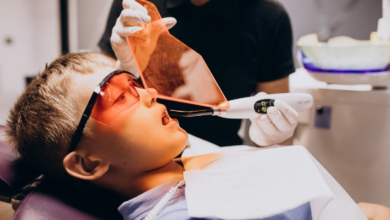The Intricate Connection Between Sleep Disorders and Dental Health

Introduction: Sleep and Dental Hygiene
The relationship between sleep disorders and oral health is more complex than many people realise. As research continues to emerge, healthcare professionals, including every dentist Meath residents trust, are increasingly recognising the significant impact that sleep-related issues can have on dental wellness and vice versa.
Understanding Sleep Disorders and Oral Health
Sleep disorders, particularly obstructive sleep apnoea and its effects on oral health, can manifest in various ways that directly affect dental well-being. These conditions often create a cycle where poor sleep impacts oral health, and dental issues can subsequently worsen sleep quality.
Common Sleep-Related Dental Issues
Several dental problems are closely associated with sleep disorders. Recent studies on nocturnal bruxism and sleep quality have identified significant correlations between sleep disturbances and tooth grinding. The most frequently observed issues include:
- Bruxism (teeth grinding)
- Temporomandibular joint (TMJ) disorders
- Dry mouth and increased cavity risk
- Periodontal disease progression
The Impact of Sleep Position on Dental Health
Sleep position plays a crucial role in both sleep quality and oral health. When individuals sleep on their backs, it can help reduce the pressure on their jaw and minimize the risk of grinding their teeth. However, this position might not be suitable for everyone, particularly those with sleep apnoea.
The Role of Dental Professionals
Dental professionals, including every dedicated Meath dentist patients consult, play a vital role in identifying and addressing sleep-related dental issues. Through comprehensive examinations, they can often spot signs of sleep disorders that might otherwise go unnoticed. Clinical guidelines for dental sleep medicine provide practitioners with the framework needed to assess and treat these conditions effectively.
Screening and Assessment
Modern dental practices have developed sophisticated screening protocols to identify potential sleep disorders. These typically include:
- Detailed patient history evaluation
- Physical examination of the oral cavity and surrounding structures
- Assessment of wear patterns on teeth
- Evaluation of jaw joint function
Treatment Approaches and Solutions
When addressing sleep-related dental issues, a comprehensive treatment plan often involves collaboration between dental professionals and sleep specialists. The approach typically needs to be tailored to each individual’s specific circumstances and symptoms.
Dental Appliances and Interventions
Modern dentistry offers various solutions for sleep-related dental problems. These may include custom-made oral appliances designed to protect teeth from grinding or to help maintain proper airway positioning during sleep. Every dentist in Meath patients visit should be able to discuss these options and their suitability for individual cases.
Lifestyle Modifications
Alongside professional interventions, certain lifestyle changes can significantly improve both sleep quality and dental health:
- Maintaining proper sleep hygiene
- Avoiding caffeine and heavy meals before bedtime
- Establishing a regular oral care routine
- Using appropriate pillows for proper head and neck support
Prevention and Long-term Management
Prevention remains a crucial aspect of managing sleep-related dental issues. Regular dental check-ups allow for early detection of potential problems and timely intervention. Patients should be encouraged to maintain detailed records of their symptoms and sleep patterns to help healthcare providers make more informed decisions about their treatment.
The Importance of Regular Monitoring
Continuous monitoring of both sleep patterns and dental health is essential for successful long-term management. This may involve periodic reassessment of oral appliances, adjustment of treatment plans, and ongoing evaluation of symptom improvements or changes.
Conclusion
The connection between sleep disorders and dental health is multifaceted and requires a comprehensive approach to treatment and management. Understanding this relationship helps healthcare providers deliver more effective care and enables patients to take proactive steps in maintaining both their oral health and sleep quality.
As research in this field continues to evolve, the importance of addressing sleep-related dental issues becomes increasingly apparent. Through proper diagnosis, treatment, and ongoing management, patients can work towards achieving optimal dental health while improving their quality of sleep. This holistic approach to healthcare demonstrates the interconnected nature of various aspects of physical well-being and the importance of comprehensive medical care.





